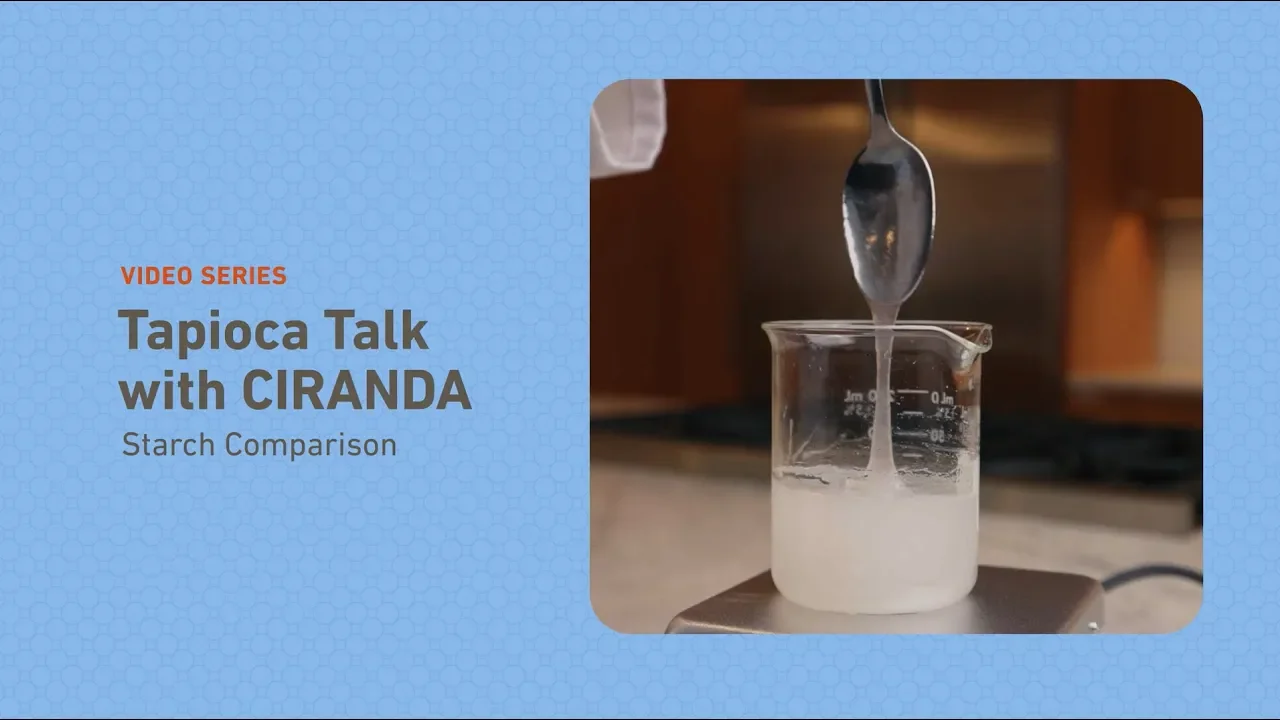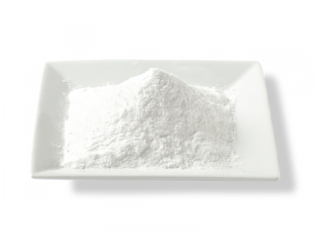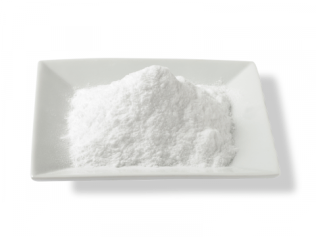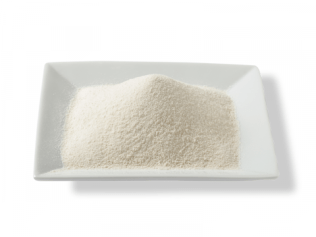Item #: Tapioca_Starch

Tapioca Starch
Organic tapioca starch is a white, bland-flavored starch derived from the tapioca (cassava) root. It is used for bulking, thickening and gelling in a variety of applications. Choose from native or pre-gelatinized tapioca starch.
SKU: 77641
Origin: Thailand
Stock Status: In Stock
Units Per Pallet: 40
Weight: 44.09 LB
Ships In: 2 Business Days
Description
Tapioca starch, also commonly called cassava starch, is one of the world's largest starch sources, coming in behind corn (maize) starch. However, unlike corn starch, no GMO tapioca cultivars exist commercially.
Organic TapiOK® tapioca starch is a high amylopectin starch with excellent water absorption properties. It forms a semi-transparent gel when hydrated. In yogurt preparations, tapioca starch adds a glossy shine and is useful for preventing syneresis (liquid migration). In gluten-free bakery and snacks, you'll find tapioca starch in baking mixes, cookies, bars, crackers, pizza crusts, pasta and more. It is also used in the pet food and personal care industries.
Native Tapioca Starch - Requires heat to activate the gelling and thickening properties
Pre-gel Tapioca Starch - Pre-gelatinized to be cold water swelling, immediately activating without the use of heat
Conventional non-GMO native and pre-gel tapioca starch is also available.
Product FAQ
-
Native tapioca starch requires heat to activate the gelling and thickening properties, while pre-gelatinized (pre-gel) tapioca starch is cold water swelling, immediately activating without the use of heat.
-
Yes, tapioca starch is naturally gluten-free and widely used in gluten-free baking and cooking.
-
Tapioca starch provides excellent clarity and stability, especially in frozen and reheated products.
-
Yes, it is used in personal care products for its absorbent and texturizing properties.

Grower Story: Anuchai Wonghyam
About 40 percent of Thailand’s population works in agriculture-related jobs. Twenty-five-year-old Anuchai Wonghyam, of Thailand’s central Nakhon Pathom province, is one of them. For the past two years, he has been employed at a tapioca production facility near his home, which he shares with his wife, his three-year-old son, and his father-in-law.
Read More














